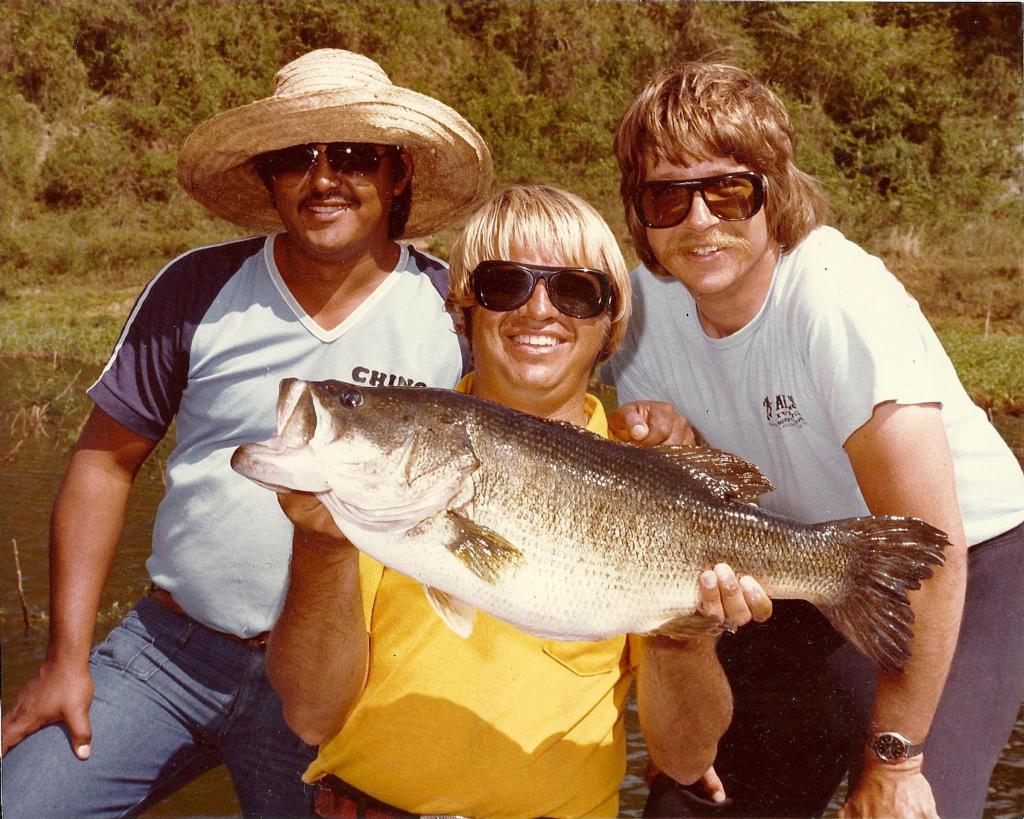Will Cuba Be Open to Fishing Again?

If relations with Cuba are normalized and American citizens are allowed to travel to that island country with no strings attached, count Jimmy Houston among the first to buy an airline ticket to Havana.
As the U.S. and Cuban governments seem to be softening their official positions toward each other now, mental images of giant Florida largemouths are starting to creep into Houston’s mind, and no doubt the minds of other anglers who have had the opportunity to sample Cuba’s fabulous bass fishing.
“I’ve caught 48 bass over 10 pounds in my life, and the largest were caught in Cuba,” says Houston. “The biggest bass I ever caught, 13-1, came from Lake Hanabanilla in 1982. I was fishing a Cordell Boy Howdy topwater on 12-pound-test line, and the line broke just as I led the bass into the net. I’ve lost or broke off other big bass while fishing in Cuba – how big, I don’t know, but they were exceptionally big.”
Of course, we’ve all heard tales of Cuba’s world-record largemouths – fish that have benefitted from a high-protein diet of tilapia in a tropical environment that fuels a hyped-up metabolism. Are there world-record bass swimming in lakes such as Hanabanilla, Redonda, Lebrije and Zaza? Houston, for one, is convinced of it.
“We started going down to Cuba back in the late ’70s to film shows,” notes Houston, whose television program, Jimmy Houston Outdoors, enters its 38th year of production in January. “And from the get-go people would show us photos of commercial handliners and other fishermen with bass that were bigger than anything I ever saw. We were told that these were 22-, 23-, 24-pound bass. I can’t prove how big those bass were, but I do believe world-record bass are swimming around down there unless something has drastically changed about those lakes – and Cuba’s got hundreds of lakes, by the way.”
How did Houston and his wife, Chris, get to fish Cuban waters in the first place? The embargo that forbade various interactions between Cuba and the U.S. was applied more than 50 years ago, but the fence had a lot of holes in it, figuratively speaking. For example, Americans could always visit for “humanitarian” reasons, and the Houstons and their TV crewmembers would take several large boxes of over-the-counter medicines and medical supplies with them to help grease the skids. Once in Cuba, the supplies were turned over to the American Red Cross for distribution. Their mission was humanitarian, but the Houstons also took advantage of the opportunity it afforded them to sample Cuba’s great fishing.
“We made a lot of friends in Cuba. It was controversial to go there back when we did, but we didn’t get into all of the political stuff. We just went there to fish and film it and promote fishing. The people of that country are just like they are anywhere else. It’s the leaders of countries, not the people, that usually cause most of the problems,” notes Houston. “We were never hassled by the U.S. or Cuba when we went down there and returned. Officials would sort of give us a wink and a nod when we were coming or going. Our fishing wasn’t really affected by politics in any way.”
Once in Cuba, Houston and his crew would be met by high-ranking Cuban officials and escorted to their fishing destinations, where local accommodations and guides were prearranged. To illustrate how friendly the people of Cuba are, Houston recalls one trip when the trolling motor battery in his boat went dead, presumably because it hadn’t been charged from the day before.
“A buddy of mine from Oklahoma City and I were fishing a lake with a highway running alongside it, so we went to the bank and our guide flagged down an old beat-up beer truck,” says Houston. “My Spanish isn’t so good, but as near as I could tell the guide explained our situation to the truck driver, who then proceeded to swap us his battery for the one that was in the boat. Of course, his was fully charged. After he installed the dead battery in his truck, we got behind the truck and pushed. Once he got up some speed, he popped the clutch and went roaring down the road.”
Houston took fishing tackle with him on his fishing forays into Cuba and left most of it behind when he returned home. As might be expected, there are few sporting goods stores. From what Houston saw, it was as if the country had been frozen in time, staying much the same as it was in the early ’60s when Fidel Castro and his revolutionary comrades gained control.
“When we were there, the people were very friendly and would do anything for us,” adds Houston. “But they were very poor and just scraped by. The ones who fished used handlines or wrapped fishing line around cans. They would fish for anything that would bite, because it was part of their daily diet.”
Though it wasn’t too problematic for Houston to travel to and from Cuba back in the late ’70s and early ’80s, over time various hurdles arose for him and other American fishermen. As Mexico’s fisheries opened and were developed to accommodate foreign anglers, Cuba’s lakes slowly faded into the background. Perhaps now they will return to the forefront.
“I would like to see things smoothed out between us and Cuba,” says Houston. “I want to go back down there fishing. If Americans could come and go freely, it would be a tremendous boon for the Cuban people for sure. Take all the politics out of it, and people are the same. They just want to make a living and be as happy as they can be.”
Video of Houston landing a giant Cuban bass